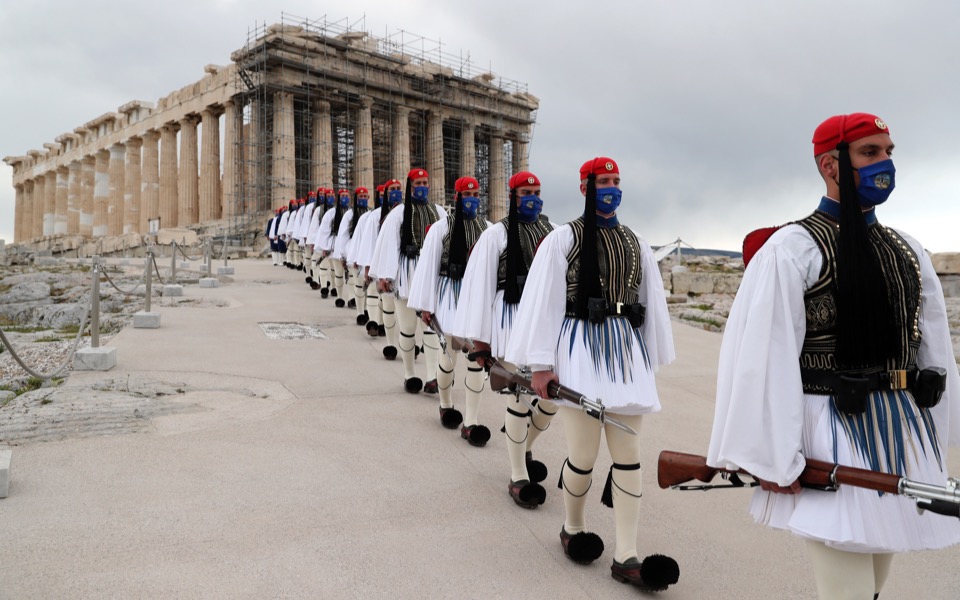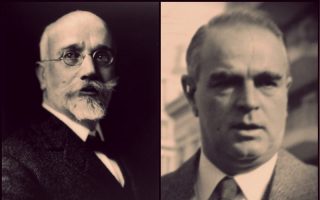The Greece created by the Revolution

Aged well over 100, Apostolos Mavrogenis died at the end of 1906, the last surviving fighter of the Greek Revolution. He had been born on Paros at the end of the 18th century and fought his way through to the end of the war. When the statue of Kolokotronis on horseback was unveiled in Nafplion in 1901, Mavrogenis was there to testify to the memory of the man he called his friend. At the time of his birth, Athens was an Ottoman backwater; by the time he died it was a national capital, with boulevards and streets with names, linked by rail to the new port of Piraeus and by steamship with Europe via the new Isthmus canal. There were universities and students, libraries and newspapers, theaters and brothels, all of them largely unknown under the Ottomans. The transformation wrought by independence reached into every domain of life.
Under the Sultan, different regions had been governed in very different ways. After independence, administration was centralized and Greeks throughout the Kingdom were ruled in a uniform fashion by a prefectural system engineered by the central state. Government for the first time became a matter of mass politics. It is true that in the Ottoman Peloponnese, there had been a kind of factional politicking for elite families. But it was only after the revolution that politics – with parties, a press, and a language of government, rights and constitutions derived from Europe – predominated among the Greeks.
Independence also gave birth to the modern capitalist economy. It was no coincidence that some of the most ardent philhellenes had been instrumental in helping raise the first national loan in 1824: international finance capital, indebtedness and the struggle for political liberty were intimately connected. Much of the economy was monetized for the first time, allowing extensive investment in land, property and – more slowly – in industries.
Despite the presence of the monarchy, the revolution gave rise to an astonishingly egalitarian society in which former Phanariot princes could find themselves addressed as Mister [Kyrie]. It was also, with the exception of the years of the Bavarian regency, remarkably democratic and a new elite arose from the intermarriage of the great landowning families of the Morea, with Phanariots and the children of wartime heroes. There were of course winners and losers. Bankers did well; the founders of the Filiki Etaireia died in poverty. While Athens grew rapidly, Tripolitsa returned to life as a small provincial town. Syros and Piraeus boomed, while the Mani and Hydra – the powerhouses of the revolution – entered years of decline.
The Greeks were right to regard their uprising as a revolution for what they had done was thus not merely to eradicate the power of the Ottoman state in their lands, but also to sweep away an entire ruling philosophy and the institutions that had supported it. Not the legitimacy of dynasties, but nation, faith, capitalism and constitutional representation were the watchwords of this new order. The fundamental principle, wrote Lord Acton in his 1862 essay on “Nationality,” was that “nations would not be governed by foreigners”: It was this principle that marked the Greek war out from the other revolutions of southern Europe around 1820 and helps explain why it was sustained and widespread but also unusually brutal and violent. Members of other oppressed peoples – Italians, Poles, Germans and others – flocked to join their fight, seeing in the success of the Greeks a promise for their own future. And though it took longer for that future to come than many of them anticipated, they were right. The Greek Revolution, wrote an economist in 1910, was “the first manifestation of that theory of nationalities which would dominate the 19th century.” And the 20th, too: Europe’s principalities, composite monarchies and land-based empires – some of which had lasted nearly as long as the Ottomans – gave way to new states based on the same principles of ethnic homogeneity and democratic rule that had emerged in Greece. This was the world of nation-states, the world in which we still live, which has survived even late 20th century globalization. In its essentials this world is the one that Apostolos Mavrogenis left behind when he died; the world of his birth is gone forever.
Mark Mazower is professor of history at Columbia University. His new book on the Greek Revolution will appear with Alexandreia in the autumn.





